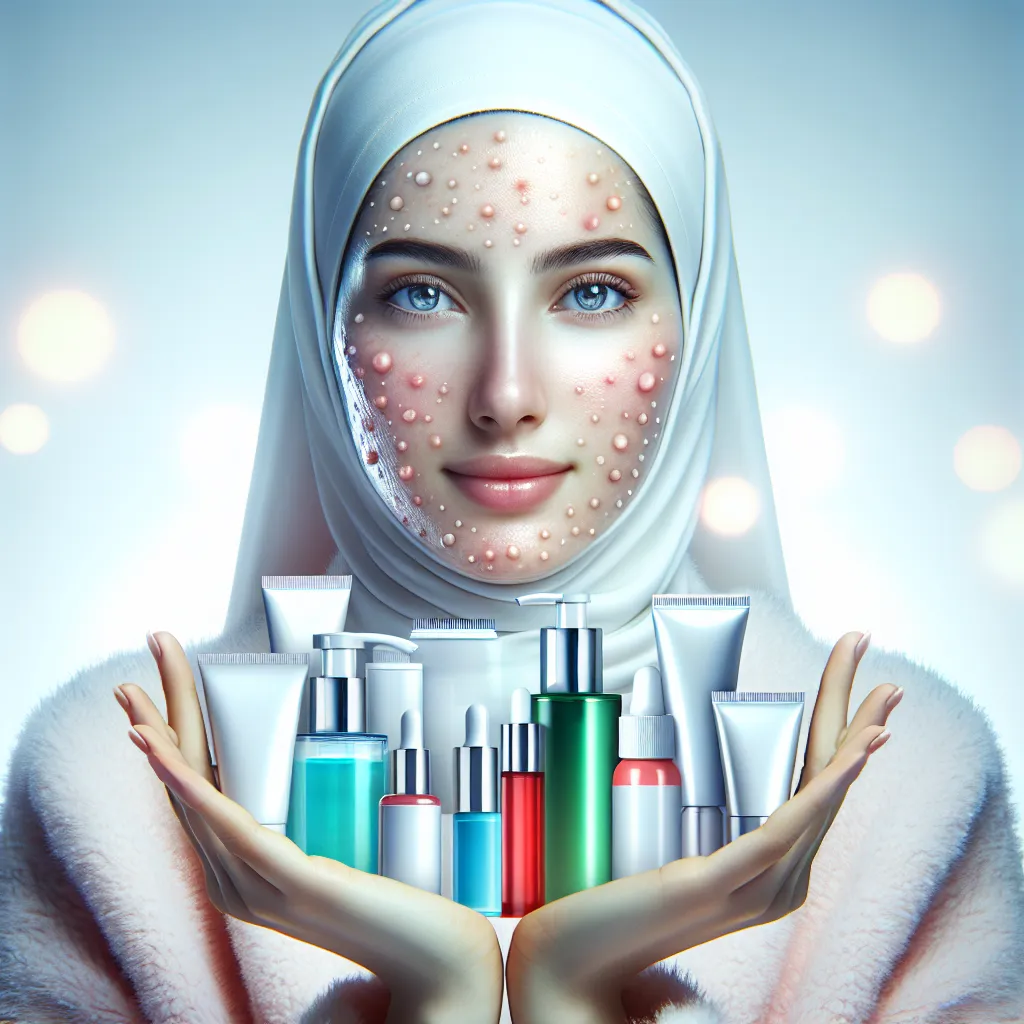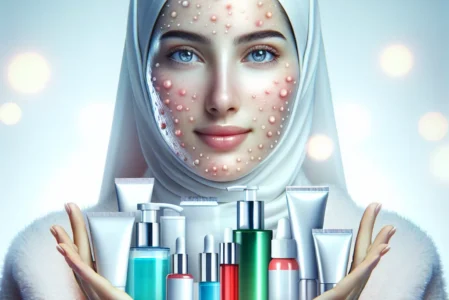Understanding Acne-Prone Skin: Causes and Triggers
Understanding the causes and triggers of acne is crucial when it comes to developing an effective skincare routine for acne-prone skin. Face care plays a significant role in managing acne, as the face is the most common area affected by this condition. Hormonal changes, excess sebum production, and the accumulation of dead skin cells are some of the causes of acne. Additionally, certain triggers such as stress, diet, and using the wrong skincare products can exacerbate acne symptoms. It’s essential to choose gentle and non-comedogenic products when it comes to face care to avoid further aggravating acne-prone skin. To learn more about face care and suitable products for acne-prone skin, visit face care.
Understanding Acne-Prone Skin: Causes and Triggers
Understanding Acne-Prone Skin: Causes and Triggers
Acne-prone skin is a common concern for many individuals, and understanding the causes and triggers of acne is essential for developing an effective skincare routine. Acne can be caused by a variety of factors, including hormonal changes, genetics, and excess oil production. Additionally, environmental factors such as pollution and humidity can also contribute to the development of acne.
Hormonal fluctuations, especially during puberty, menstruation, or pregnancy, can lead to an increase in sebum production, which in turn can clog pores and result in acne breakouts. Genetics also play a significant role in determining an individual’s predisposition to acne, as it can influence factors such as skin type, oil production, and inflammatory responses.
External factors like pollution and high humidity can contribute to the accumulation of dirt, oil, and debris on the skin, leading to clogged pores and inflammation. Additionally, certain skincare and cosmetic products that are comedogenic or irritating can exacerbate acne-prone skin.
Understanding the causes and triggers of acne-prone skin is crucial for tailoring a skincare routine that addresses these specific concerns. By taking into account these factors, individuals can make informed decisions when selecting products and developing a skincare regimen that supports the overall health of their skin.
Building an Effective Skincare Routine for Acne-Prone Skin
Building an effective skincare routine for acne-prone skin requires careful consideration and personalized attention. With the right combination of products and steps, it is possible to manage and improve acne-prone skin. The key to an effective skincare routine lies in understanding the needs of your skin and selecting the right products to address those needs.
When establishing a skincare routine for acne-prone skin, it is crucial to start with a gentle cleanser that can effectively remove excess oil, dirt, and impurities without causing irritation. Look for cleansers with salicylic acid or benzoyl peroxide, as these ingredients can help to unclog pores and reduce acne-causing bacteria.
After cleansing, exfoliation should be incorporated into the routine to remove dead skin cells and prevent clogged pores. However, it is important to choose a gentle exfoliant to avoid aggravating the skin. Products containing alpha hydroxy acids (AHAs) or beta hydroxy acids (BHAs) can be beneficial for acne-prone skin.
Following exfoliation, the next step is to incorporate treatments targeted at acne prevention and reduction. This can include the use of serums or spot treatments containing ingredients like retinol, niacinamide, or tea tree oil, which are known for their effectiveness in addressing acne and its associated concerns.
Moisturizing is a critical step in any skincare routine, even for acne-prone skin. Opt for lightweight, non-comedogenic moisturizers that provide hydration without clogging pores. Hyaluronic acid-based or oil-free moisturizers can be suitable choices for acne-prone skin.
Finally, the use of sunscreen is essential in any skincare routine, especially for acne-prone skin. Look for non-comedogenic, broad-spectrum sunscreens with an SPF of 30 or higher to protect the skin from potential damage and prevent post-inflammatory hyperpigmentation.
Remember that consistency is key when it comes to building an effective skincare routine for acne-prone skin. Additionally, it is crucial to introduce new products gradually to monitor how the skin responds and to avoid potential irritation. Consulting with a dermatologist can also provide personalized recommendations for an effective acne-prone skincare routine.
Ingredients to Look for (and Avoid) in Acne-Prone Skincare Products
When it comes to creating a skincare routine for acne-prone skin, choosing the right ingredients is crucial. Some ingredients can effectively combat acne and promote clear skin, while others may exacerbate the problem. Therefore, it is essential to know which ingredients to look for and which ones to avoid in acne-prone skincare products.
One key ingredient to look for in skincare products for acne-prone skin is salicylic acid. This beta hydroxy acid (BHA) exfoliates the skin, unclogs pores, and reduces inflammation, making it an excellent choice for treating acne. Another beneficial ingredient is benzoyl peroxide, which kills acne-causing bacteria and helps to clear breakouts. Additionally, products containing niacinamide, a form of vitamin B3, can be beneficial for acne-prone skin due to its anti-inflammatory and sebum-reducing properties.
On the other hand, there are ingredients that individuals with acne-prone skin should avoid. Comedogenic substances such as mineral oil, cocoa butter, and certain types of silicones can clog pores and worsen acne. Similarly, skincare products containing heavy fragrances and essential oils may cause irritation and trigger breakouts in sensitive, acne-prone skin.
Understanding the impact of specific ingredients on acne-prone skin is essential for developing an effective skincare routine. By choosing products with the right ingredients and avoiding potentially harmful ones, individuals can better manage their acne and achieve clearer, healthier skin.
Proven Tips and Tricks for Managing Acne-Prone Skin
Managing acne-prone skin can be a challenging task, but with the right skincare routine and proven tips and tricks, it is entirely manageable. One of the crucial aspects of caring for acne-prone skin is to maintain a consistent and gentle skincare routine. Cleansing the skin with a gentle, non-comedogenic cleanser twice a day helps in removing excess oil, dirt, and impurities without stripping the skin of its natural moisture.
Another proven tip for managing acne-prone skin is to incorporate exfoliation into the skincare routine. Regular exfoliation helps in removing dead skin cells, preventing clogged pores, and reducing the occurrence of breakouts. However, it is important to choose a gentle exfoliator to avoid irritating the skin further. Additionally, using skincare products with ingredients like salicylic acid, benzoyl peroxide, or tea tree oil can effectively target acne-causing bacteria and reduce inflammation.
Maintaining adequate hydration is also essential for acne-prone skin. Opting for a non-comedogenic, oil-free moisturizer helps in keeping the skin hydrated without clogging the pores. Moreover, incorporating a broad-spectrum sunscreen into the daily skincare routine is crucial as some acne treatments can make the skin more sensitive to the sun.
Lastly, adopting a healthy lifestyle, including a balanced diet, regular exercise, and stress management, can significantly contribute to managing acne-prone skin. Consuming a diet rich in fruits, vegetables, and whole grains while minimizing processed foods and sugars can help in reducing inflammation and promoting overall skin health.
By following these proven tips and tricks and customizing a skincare routine tailored to acne-prone skin, individuals can effectively manage their skin condition and promote a clearer, healthier complexion.

